The ancient Buddhist monastery of Ratnagiri, in the Jajpur district of Odisha, is one of India’s premier Buddhist archaeological sites. It used to be a major centre of Mahayana Buddhism and eventually grew into a popular hub of Tantric Buddhism, or Vajrayana Buddhism. Ratnagiri Monastery, also known by its local name of Ratnagiri Vihara, boasts incredible stupas, statues, and inscriptions. It is likely the place where the Chinese Buddhist monk Xuanzang paused to pay homage on his way to the famous Buddhist monastery of Nalanda in the 7th century CE, as described in his famous book.
Quick Details About Ratnagiri Monastery
Ratnagiri Monastery Timings: 9 AM – 5 PM
Best Time To Visit: October to March
Time Duration: 2-3 hours
Nearest Railway Station: Jajpur Keonjhar Road (70 km)
Nearest Airport: Biju Patnaik International Airport, Bhubaneswar (100 km)
About Ratnagiri Monastery
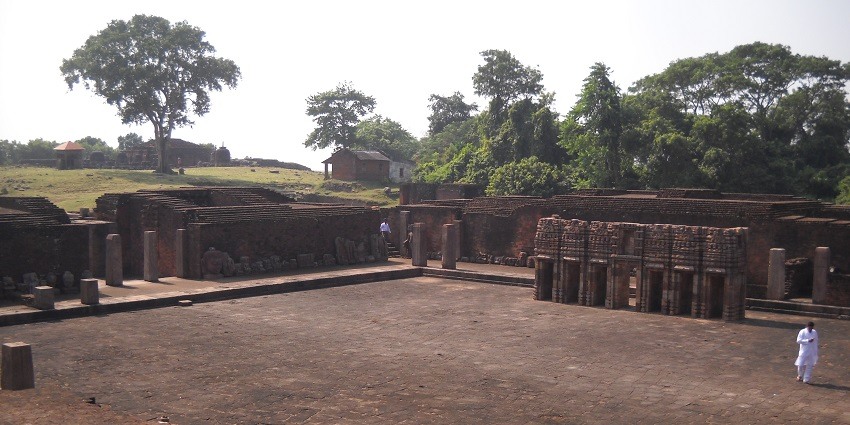
Photo: Mitrabhanu.panda / Wikimedia Commons
Ratnagiri Monastery was established by the Gupta dynasty in the 5th century CE. Established under the patronage of King Narasimha Baladharman, it was one of the major sites of early and later Buddhism in India. The monastery has five large stupas, more than a dozen smaller ones, dozens of votive stupas, more than a hundred monastic cells, and prayer halls. The entrance to the main stupa is formed by two large carved blocks of dark stone, each weighing around half a ton. The interior of the stupa contains Buddha’s relics, which were originally brought from other sites in India.
Location
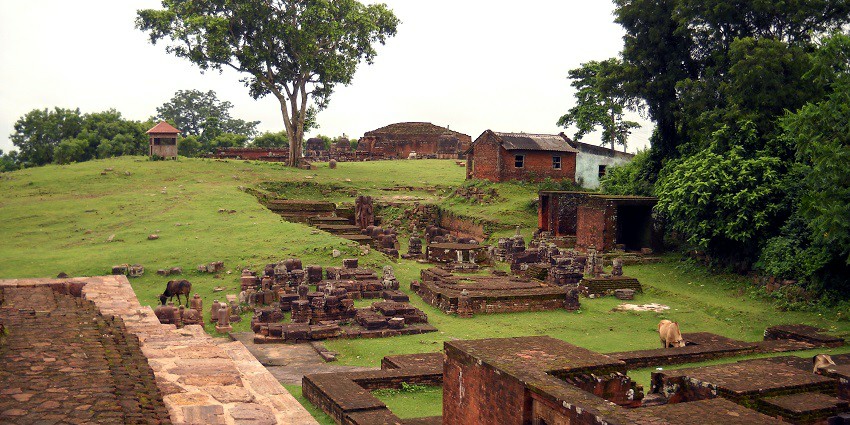
Photo: Daniel Limma / Wikimedia Commons / Image For Representation Only
The monastery is located in Bhubaneshwar, the capital of Odisha, on stunningly beautiful hills. It is on the north bank of the Birupa Mahanadi River, which is now known as the Daya, at Lalitgiri in Barabati. As part of the ‘Diamond Triangle’ of the ‘Ratnagiri-Udayagiri-Lalitgiri’ complexes, it lies close to similar monastic sites, like Lalitgiri and Udayagiri. The exact Ratnagiri Monastery address is Ratnagiri, Odisha 755003.
Suggested Read: Odisha State Museum
How To Reach Ratnagiri Monastery
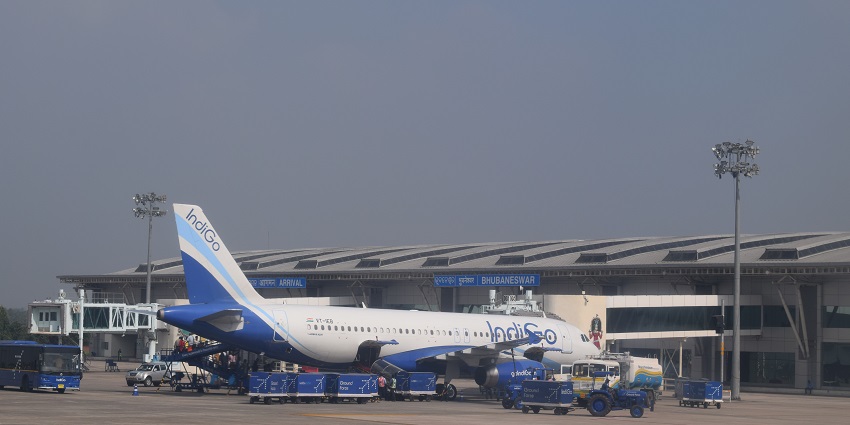
Photo: Chinmayee Mishra / Wikimedia Commons
The monastery is accessible by road, rail, and air from nearby cities.
By Air: The nearest airport is the Biju Patnaik International Airport in Bhubaneswar, which is almost 100 km away. Tourists can hire taxis and cabs to reach there from Bhubaneshwar. Bus service is also available.
By Train: The nearest railway station to the monastery is Jajpur Keonjhar Road at a distance of 70 km. You can hire a taxi or a bus from there.
By Road:: Ratnagiri is well connected by road to Cuttack (90 km approx), Bhubaneswar (100 km approx) and the rest of Odisha. It is easy to find frequent bus facility from Bhubaneswar and Cuttack. Taxi and cab facility is also available.
Places To Visit Near Ratnagiri Monastery
After exploring the Ratnagiri Monastery Odisha, you can visit other nearby places to uncover more about the rich Buddhist history.
1. Lalitgiri Monastery
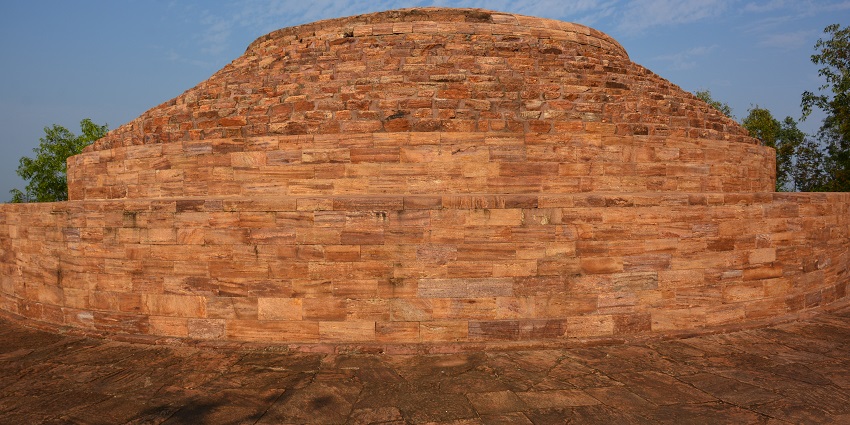
Photo: Rajani3737 / Wikimedia Commons
One of the most important sites of the Diamond Triangle, Lalitgiri is a complex of ancient Buddhist ruins dating back to the 1st century CE. It is believed to be one of the oldest Buddhist sites in India. Lalitgiri’s biggest attraction is its massive Mahastupa, which contains the relics of the Buddha. The site has two monasteries with Buddhist deity sculptures. Avalokitesvara, a Mahayana bodhisattva, is the most worshipped deity here. The site is also known for its huge stone carvings and remains of Chaityagrihas or prayer halls.
Location: 12 km from Ratnagiri
Entry Fee: ₹15 for Indians, ₹200 for foreigners
Suggested Read: A Complete Guide to the Tribal Museum Bhubaneswar
2. Udayagiri Monastery
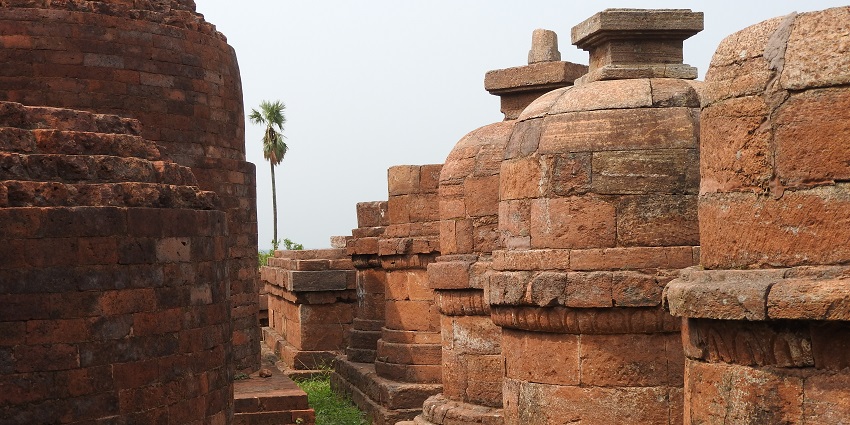
Photo: Amara Bharathy / Wikimedia Commons
Udayagiri, the other main site in the Diamond Triangle, is famous for its rock-cut caves and gigantic stupas. The rock-cut caves and large monasteries and viharas or residences of monks at this place are believed to date from the 7th century CE. Excavations at Udayagiri have yielded several impressive carvings of Buddhas, Bodhisattvas, and Tara. The stupas and their walls have some of the most beautiful carvings from this region. It is also one of the important sites to understand Tantric Buddhism. Udayagiri is ideal for trekking enthusiasts, as it offers various trails leading to breathtaking viewpoints.
Location: 8 km from Ratnagiri
Entry Fee: Free
Suggested Read: Pool Party In Bhubaneswar
3. Chandragiri Monastery
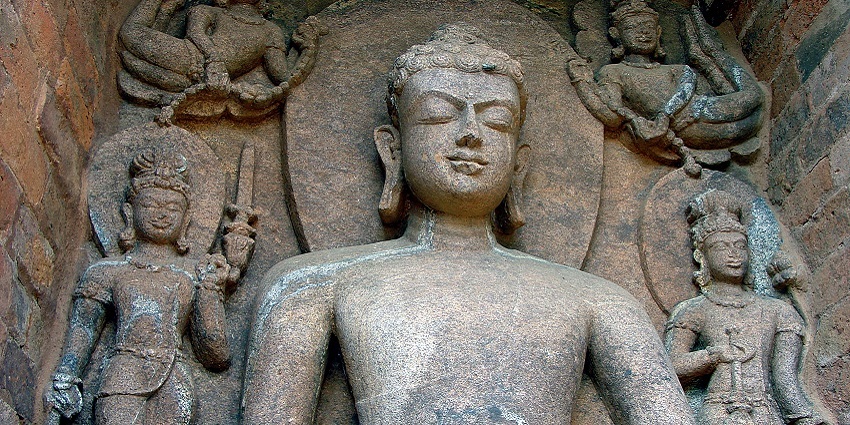
Photo: G41rn8 / Wikimedia Commons / Image For Representation Only
Located further from Ratnagiri, Chandragiri Monastery is a Tibetan Buddhist settlement. Tibetan refugees built many of the monasteries in Chandragiri in the 1960s, and the largest one, called the Padmasambhava Mahavihara, has vividly coloured architecture and large golden images of the Buddha. Chandragiri offers a different flavour of Buddhism, which combines Tibetan traditions with those of the local Odisha culture. The monastery complex is adorned with Tibetan murals, prayer flags, and mantras. The annual Tibetan festival at Chandragiri is a major attraction, drawing people to enjoy the Tibetan dances, music and religious rituals.
Location: 110 km from Ratnagiri
Entry Fee: Free
4. Dhauligiri Hills
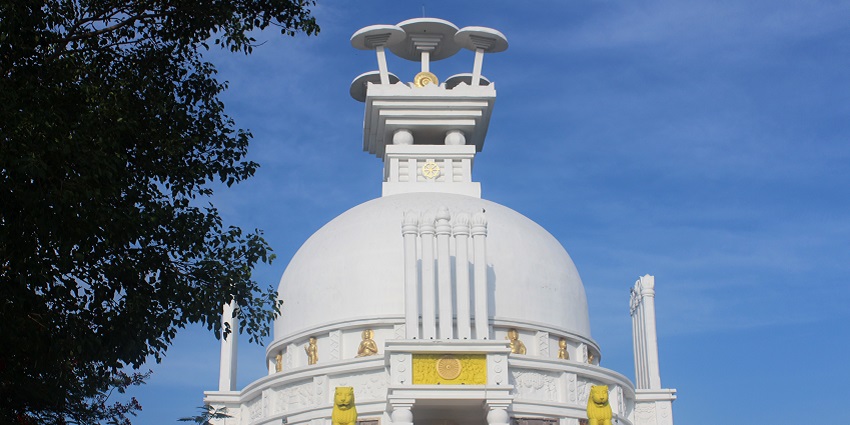
Photo: Sailesh Patnaik / Wikimedia Commons
Dhauligiri Hills are where the Kalinga War in 261 BCE was fought under Ashoka between the Mauryan Empire and the kingdom of Kalinga. This eventually changed the life of the emperor Ashoka, who became a follower of Buddhism and a promoter of peace and dharma. Later, Buddhism spread through the Indian subcontinent. The Shanti Stupa (Peace Pagoda) at the top of the Dhauligiri Hills has been created in memory of Ashoka’s conversion to Buddhism. It was built with the help of the Japan Buddha Sangha to mark its 2500th anniversary in 2001. From the top of the stupa, one can see the Daya River surrounded by the plains below.
Location: 90 km from Ratnagiri
Entry Fee: Free
5. Langudi Hills
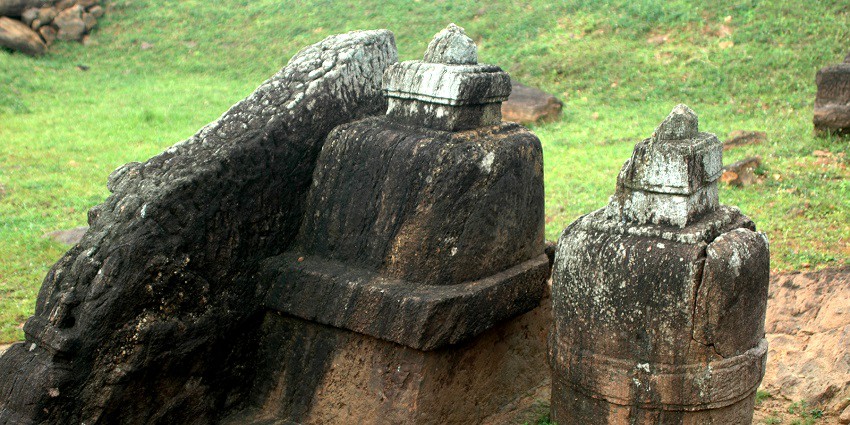
Photo: Prithwiraj Dhang / Wikimedia Commons
Langudi Hills near Ratnagiri holds a lot of ancient Buddhist history. Excavations here have revealed a cluster of stupas, votive stupas and monasteries belonging to the Maurya and Kushan periods. Langudi is famous for the rock-cut panels depicting the life of Buddha, especially his Dharma Chakra Pravartana at Sarnath. A depiction from the Gupta-era rock-cut panels at Langudi Hills in India shows Buddha giving his Dharma Chakra Pravartana at Sarnath. The site is not very popular among tourists, but it is a quiet and peaceful place to spend time.
Location: 70 km from Ratnagiri
Entry Fee: Free
Suggested Read: Ushakothi Wildlife Sanctuary
Tips For Travellers
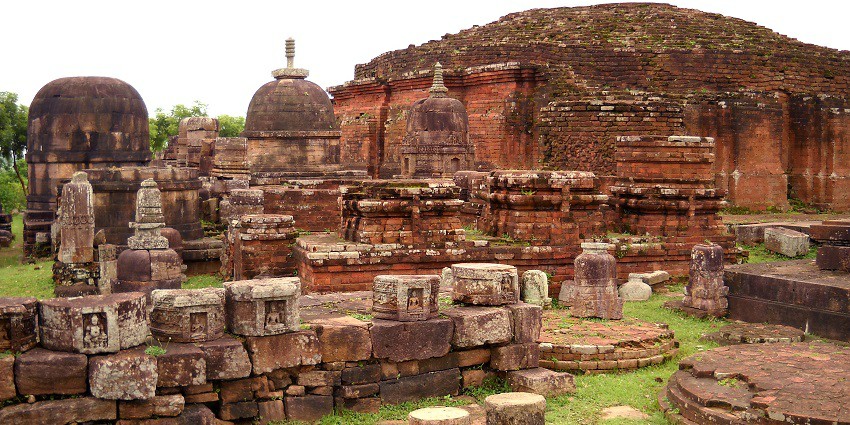
Photo: Daniel Limma / Wikimedia Commons
There are certain tips that every traveller should keep in mind on a visit to the monastery.
- Carry water and snacks, as there are limited food outlets near the monastery.
- Respect local customs and the sanctity of archaeological ruins and religious sites.
- Wear comfortable shoes, as the monastery complex requires a fair amount of walking.
- Don’t forget to carry a camera to capture Ratnagiri Monastery photos.
A visit to Ratnagiri Monastery is not just a time travel to the medieval age but also a soulful journey to the core of India’s Buddhist heritage. Its contribution to the religious anthropology of India makes it one of the most significant archaeological sites in the country. So, if you want to be a part of this great exploration, plan your trip to Ratnagiri with TripXL.
Cover Photo: G41rn8 / Wikimedia Commons


 WhatsApp
WhatsApp
 Twitter
Twitter









